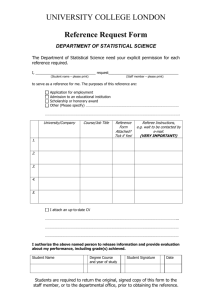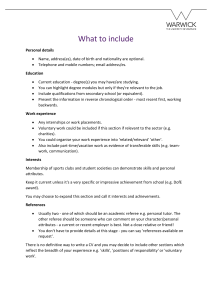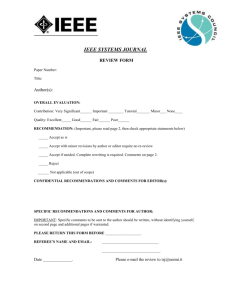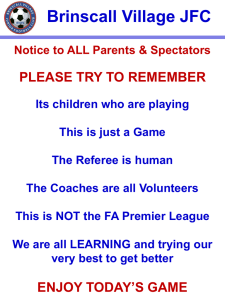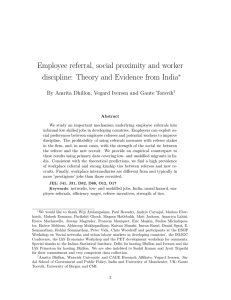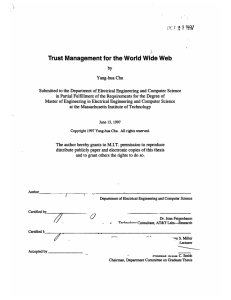REFERENCES employer when checking your references is to:
advertisement
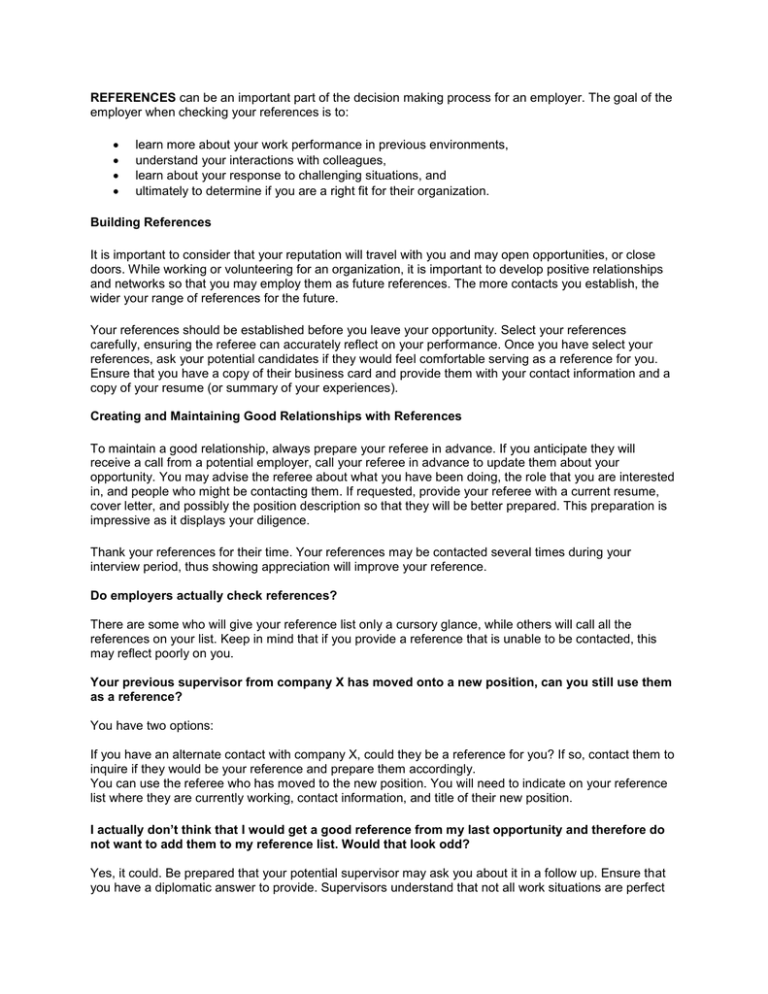
REFERENCES can be an important part of the decision making process for an employer. The goal of the employer when checking your references is to: learn more about your work performance in previous environments, understand your interactions with colleagues, learn about your response to challenging situations, and ultimately to determine if you are a right fit for their organization. Building References It is important to consider that your reputation will travel with you and may open opportunities, or close doors. While working or volunteering for an organization, it is important to develop positive relationships and networks so that you may employ them as future references. The more contacts you establish, the wider your range of references for the future. Your references should be established before you leave your opportunity. Select your references carefully, ensuring the referee can accurately reflect on your performance. Once you have select your references, ask your potential candidates if they would feel comfortable serving as a reference for you. Ensure that you have a copy of their business card and provide them with your contact information and a copy of your resume (or summary of your experiences). Creating and Maintaining Good Relationships with References To maintain a good relationship, always prepare your referee in advance. If you anticipate they will receive a call from a potential employer, call your referee in advance to update them about your opportunity. You may advise the referee about what you have been doing, the role that you are interested in, and people who might be contacting them. If requested, provide your referee with a current resume, cover letter, and possibly the position description so that they will be better prepared. This preparation is impressive as it displays your diligence. Thank your references for their time. Your references may be contacted several times during your interview period, thus showing appreciation will improve your reference. Do employers actually check references? There are some who will give your reference list only a cursory glance, while others will call all the references on your list. Keep in mind that if you provide a reference that is unable to be contacted, this may reflect poorly on you. Your previous supervisor from company X has moved onto a new position, can you still use them as a reference? You have two options: If you have an alternate contact with company X, could they be a reference for you? If so, contact them to inquire if they would be your reference and prepare them accordingly. You can use the referee who has moved to the new position. You will need to indicate on your reference list where they are currently working, contact information, and title of their new position. I actually don’t think that I would get a good reference from my last opportunity and therefore do not want to add them to my reference list. Would that look odd? Yes, it could. Be prepared that your potential supervisor may ask you about it in a follow up. Ensure that you have a diplomatic answer to provide. Supervisors understand that not all work situations are perfect matches, but they will be concerned if it is problem that could likely reoccur. This is where your ability to review, reflect, deliberate and show that you have learned from your past experiences is valuable. Presentation of References References should be presented on a separate sheet using the same information block (personalized header) as used for the resume and cover letter. Generally you should provide at least 3 references (no more than 5). Present references in a consistent format, which includes: Your name, address, and contact information at the top of the page (this information block should match your cover letter and resume). Name, title, and contact information of your reference. A brief note under each name explaining their relationship to you (for example; professor, supervisor). As a rule of thumb, try and pick two work related references and one other.
